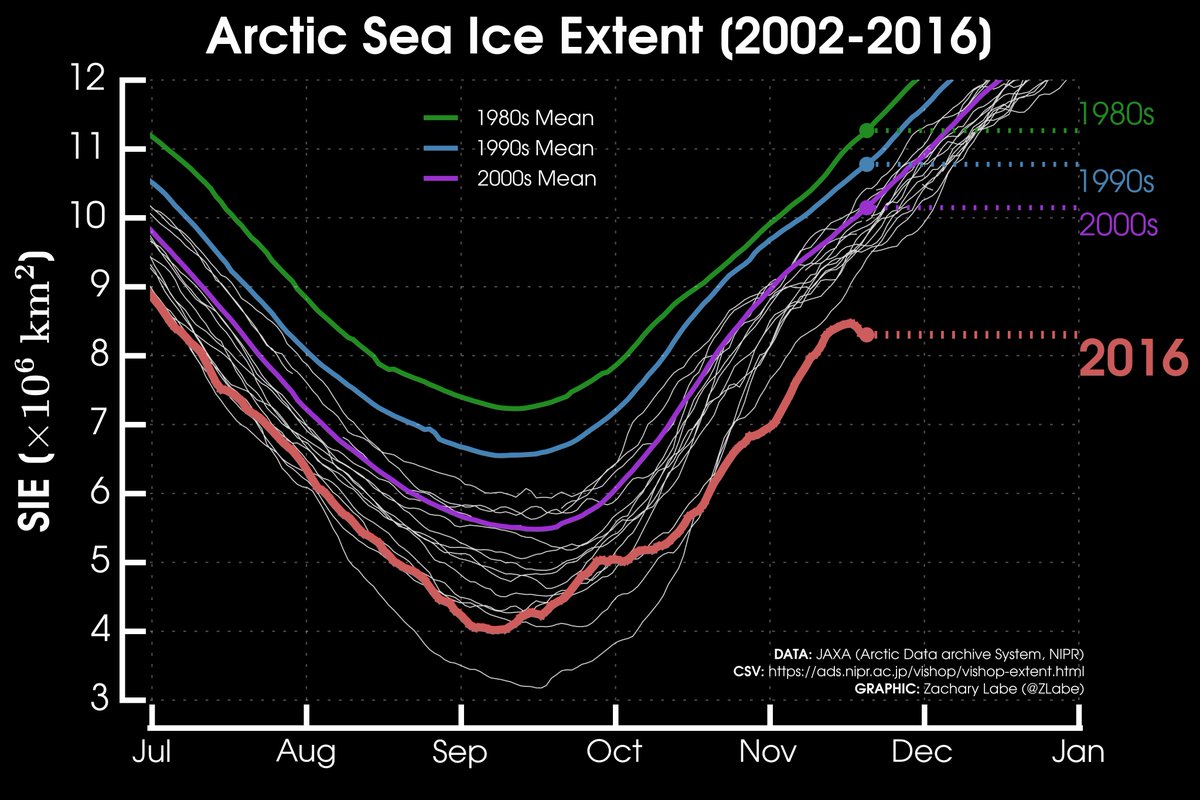We might get more sea ice in the coming years? - Really?
Strange,
super-hot temperatures at the Arctic mean that sea ice is melting
The
ice should start coming back over the last few weeks, but it hasn’t
Andrew
Griffin


24
November, 2016
Strange
events in the Arctic appear to suggest that something very troubling
is happening with the sea ice there, scientists have said.
The
North Pole is experiencing hugely unexpected hot sea temperatures,
which are stopping the usual ice from forming and could be a mark
that something global warming is having even more worrying effects
than previously thought.
In
most years, the sun goes down in mid-October and that serves as a
signal that the sea ice will start coming back as the water freezes.
But this year that ice is actually melting, because intense heat is
stopping the usual processes from happening
Scientists
say that heat has never been seen in previous years and is “off the
charts” when compared with what has happened before. Temperatures
have been as much as 20C hotter than where they usually should be.
Part
of that is the result of cold weather over northern Russia that’s
on its way to the Arctic. When it arrives there, the freezing should
begin and much of the ice that should already be there will appear.
But
because of that effect, there’s likely to be problems over the next
year because the ice will be thinner. And the hot air itself is
likely to cause strange weather, with the cold air being pushed
further south.
The
unusual melting and lack of freezing doesn’t necessarily mean that
scientists have underestimated the extent of climate change so much
as the effect that climate change will have on sea ice.
The
concern about the planet’s poles is actually worry
about two effects. In the Arctic, the sea ice recovery usually
happens around this time, and isn’t; but in the Antarctic, sea ice
levels are also falling far more quickly than would usually be
expected.
Antarctica
would usually lose sea ice during this period, but it is melting far
quicker than expected. That’s thought partly to be the result of
climate change, but also is happening because of the effects of the
El Nino that wreaked havoc on the world’s weather last year.
Climate
scientists have traditionally resisted using the amount of sea ice as
a measure of the climate, in part because it underestimates the
effects.
“Lumping
the two together has been a climate denier tactic in the past to mask
out the sharp drop in Arctic sea ice in recent years,” wrote
meteorologist Eric Holthaus.
Mr
Holthaus also wrote that climate change might actually lead to more
sea ice in the coming years.
“On
the one hand, increased ice mass loss and freshwater output from
Antarctica may actually lead to increased sea ice in the next few
decades because freshwater freezes more quickly than saltwater. On
the other hand, temperatures are going up—not good news if you're
an ice cube.”
Visualization of #seaice from 9/19-11/19/2016. Outer lines indicate the average sea ice extent in the 1980/1990/2000s. Watch the Kara Sea:



 Zack Labe
Zack Labe


















No comments:
Post a Comment
Note: only a member of this blog may post a comment.